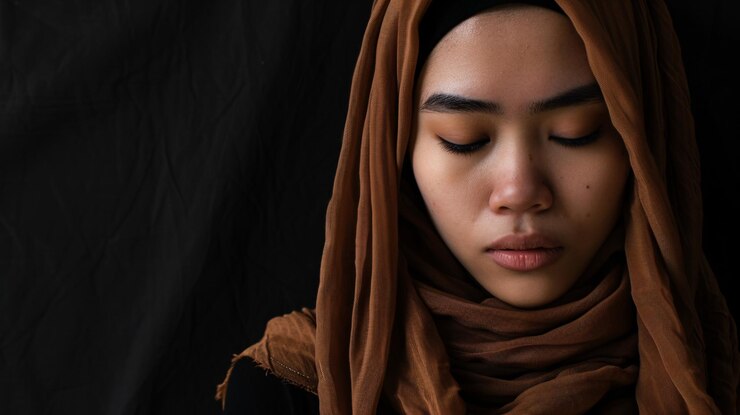Question
Do women have to stay at home during their first menstruation? Or can they go to school or see a doctor, or attend a function, etc?
Short Summary
Women are not required to stay at home during their first menstruation or any menstruation. Islam places restrictions only on certain acts of worship, not on education, medical care, work, or daily activities. It is not permissible for a menstruating woman to stay in the mosque, but she may pass through. She may also listen to study circles or Qur’an recitation from outside the prayer area.
Key Points
- Menstruation is a natural condition, not a reason for confinement.
- Women may study, work, seek medical care, travel, and socialize as normal.
- Restrictions are limited to prayer, fasting, tawaf, and direct contact with the Qur’an.
- Women may not stay in the mosque while menstruating, but may pass through.
- They may listen to halaqahs or Qur’an recitation from outside the mosque.
- Cultural seclusion practices are not based on Islam.
Detailed Answer
Menstruation (hayd) is a natural condition recognized in Islam. The Qur’an addresses it only regarding marital intimacy:
“They ask you about menstruation. Say: It is a discomfort, so keep away from women during menstruation and do not approach them until they are pure. When they have purified themselves, then go to them as Allah has ordained for you.” (Qur’an 2:222)
This ruling relates only to marital relations. It does not restrict women from leaving the house, studying, seeking medical treatment, or taking part in community life.
The Sunnah also confirms normal social participation:
-
‘Aishah (may Allah be pleased with her) said:
“The Prophet (peace be upon him) would recline in my lap while I was menstruating and recite Qur’an.” (Bukhari 297, Muslim 301)
-
Umm ‘Atiyyah (may Allah be pleased with her) reported:
“The Messenger of Allah (peace be upon him) commanded us to bring out on Eid the young women, menstruating women, and virgins. The menstruating women were to keep away from the prayer place but witness the goodness and the supplications of the Muslims.” (Bukhari 324, Muslim 890)
From this evidence, scholars explained that menstruation does not prevent women from daily life, only from specific acts of worship. Islam never demanded isolation. Any practice of keeping women at home during menstruation comes from culture, not religion.
Mosque Ruling
It is not permissible for a menstruating woman to stay in the mosque. However, passing through is allowed if there is no risk of impurity. She may not sit in the mosque for halaqahs or Qur’an recitation. If the sound of the halaqah or Qur’an can be heard from outside (such as through loudspeakers), then she may sit outside and listen.
Thus, the restrictions of menstruation are related to worship, not to school, medical visits, work, or daily life.
What This Means for You
A woman experiencing her first menstruation can attend school, go to the doctor, and continue her normal life. She only refrains from prayer, fasting, tawaf, and touching the physical mushaf until purified. It is not permissible for a menstruating woman to stay in the mosque. As for passing through the mosque, there is nothing wrong with that. Thus, it is not permissible for her to go there to listen to Halaqahs (study circles) and recitation of the Quran, unless there is a place outside the mosque where the sound can reach via loudspeakers, in which case she can sit there and listen to the Dhikr.
And Allah knows best
References
Primary Sources:
Secondary Sources:
- Ibn Qudamah, al-Mughni, vol. 1 (chapter on menstruation rulings)
- Al-Nawawi, al-Majmu‘ Sharh al-Muhadhdhab, vol. 2 (on menstruating women attending Eid and social gatherings)
- Ibn Taymiyyah, Majmu‘ al-Fatawa, vol. 26 (clarification that menstruation only restricts acts of worship, not daily life)
Was this helpful?
Leave Your Comments
© Copyright 2025, All Rights Reserved

